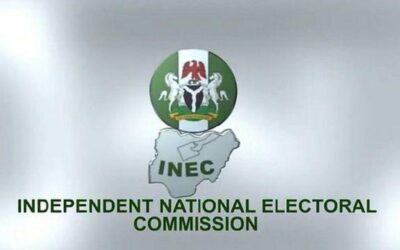ECOWAS Leaders Call for Synergy in Global Sanctions Against Mali and Guinea

Leaders of the Economic Community of West African States (ECOWAS) has concluded its 60th Ordinary Session of the Authority of Heads of State and Government in Abuja with a communiqué for the international community to support the sanctions imposed on Guinea and Mali so as to promote peace, security, and stability in the region.
Those in attendance are the President of Ghana and Chair of ECOWAS Authority of Heads of state and Governments, Nana Akufo-Addo; the former President of Nigeria, Dr Goodluck Jonathan; Special Representatives of the United Nations; President of Togo, Faure Gnassingbe and the President of Niger Republic, Mohamed Bazoum.
Others are the Presidents of The Gambia, Adama Barrow; Cote D’ Ivoire, Alassane Ouattara; Senegal, Macky Sall; Guinea Bissau, Umaro Sissoco Embaló; Sierra Leone, Julius Bio and the President of Cape Verde, Jose Maria Neves.
Earlier, President Buhari had lamented that the region is plagued by numerous challenges especially the situation in Mali and Guinea where the military seized power.
He highlighted that West Africa continues to suffer from diverse challenges including political, security, environmental and socioeconomic concerns linked to the coronavirus pandemic.
The communiqué reiterated the strong concerns over the transition processes in Guinea and Mali and observed that there is the absence of clear indicators leading to the restoration of constitutional order in conformity with the authority’s decision.
It, however, commended the recent decision of the transition authorities in Guinea to allow former President Alfa Conte to return to Guinea.
On the issue of Mali, the ECOWAS leaders noted the official communication of December 9 from Malian authorities that the timetable for the election would be transmitted on Jan. 31, 2022.
The leaders expressed serious concern over the deterioration of the security situation in the Sahel, the surging terrorist attacks in Burkina Faso, Mali, Niger, and Nigeria as well as the expansion of the attacks in the coastal countries reassured of its determination to relentlessly combat terrorism.
“To that effect, the authority welcomes the recent conduct by some member states of joint operations along borders of front line countries and directed the commission to provide support for the planning and conduct of such operations within the framework of the implementation of the 2020-2024 Plan of action to eradicate terrorism in the region,’’ the communiqué read.
On the issue of creation of a monetary union, the authority hinted on the status of macroeconomic convergence within the ECOWAS in the first half of 2021 and welcomed the reopening of land borders in ECOWAS for the Free Movement of Persons.
The summit also acknowledged the ECOWAS Regional Public Private Partnership (PPP) which is a veritable platform to raise alternative and innovative financing for regional projects.
It also harped on a harmonised Regional Road Safety Policy, an action plan, a monitoring and evaluation framework and a Regional Road Safety Charter to guide the coordinated and harmonised improvement of safety in the ECOWAS region.
The summit also adopted the ECOWAS Vision 2050 and the participatory process that presided over the development of the vision.
According to the communiqué the vision aims at creating “a community of people fully integrated in a peaceful, prosperous region with strong institutions that respect fundamental freedoms and work for inclusive and sustainable development’’.


